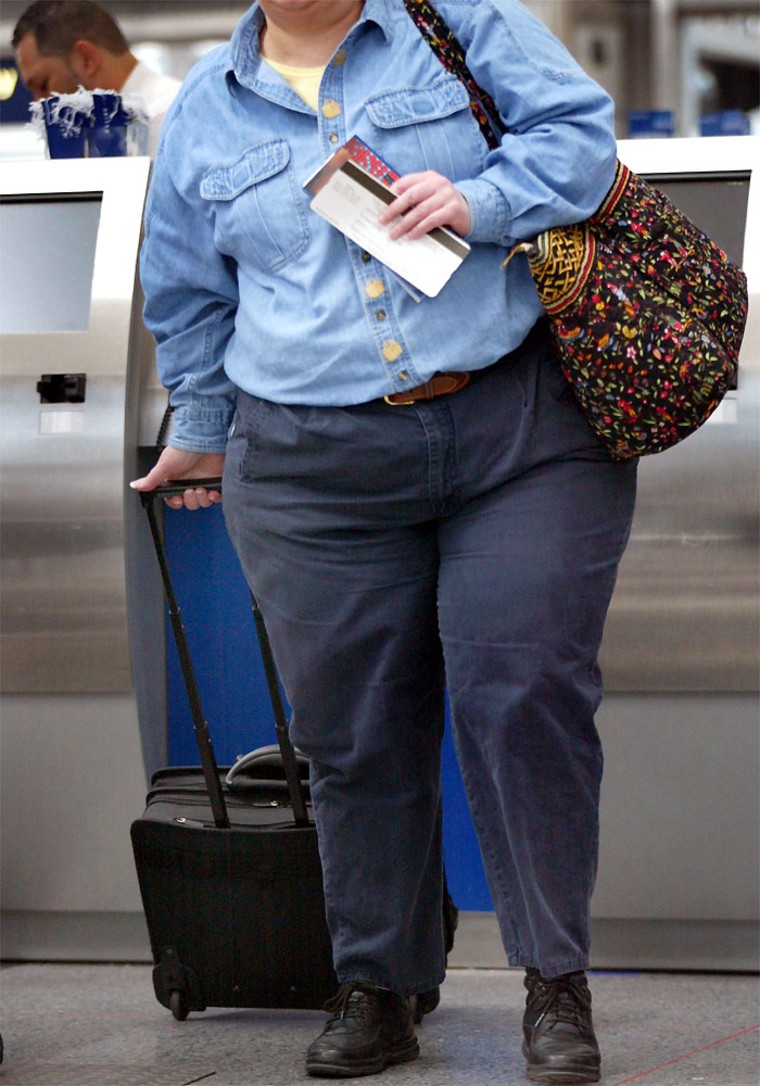This week Rand released a study saying that the epidemic of obesity in America could cancel recent improvements in health within the next 20 years, and the U.S. Centers for Disease Control and Prevention released another saying that poor diet and physical inactivity may soon overtake smoking as the deadliest habits in the United States.PepsiCo announced it will release a "mid-calorie" cola.
There is danger everywhere, but meanwhile Krispy Kreme Doughnuts increased fiscal fourth-quarter sales by 36 percent over last year.
Despite the dire warnings, the doughnut maker's earnings report, which included same-store sales increases of better than 10 percent and more than 300 new stores, indicate there is still plenty of money in fat. Even what seems thin may be fat: McDonald's latest line in healthy-looking salads may contain more fat than its hamburgers, according to a Reuters report, citing information on the company's Web site.
Recently, no less an oracle than Federal Reserve Chairman Alan Greenspan argued that demographic changes — more people entering retirement coupled with retirees living longer — could bankrupt the Social Security system. One conspiracy-minded reader suggested that food trends may have been orchestrated as a counterweight to longer living bankrupting retirement plans.
But the economics of obesity are not too rosy, either, according to the Rand study. If Americans continue to grow fatter at current rates, about 20 percent of health care dollars spent on people aged 50 to 69 could by 2020 be due to fat-related ailments, the Rand study said. That's 50 percent more than now.
The battle of the bulge seems more like the Cold War: Billions are spent by Americans looking to get thinner, but countervailing forces, such as more time spent in cars driving past more fast-food restaurants from more distant suburbs to increasingly suburban office parks cancel out the effort. Food is increasingly cheap and exercise in daily lives is more and more rare.
The result is hardly surprising: "We're just too darn fat, ladies and gentlemen, and we're going to do something about it," Health and Human Services Secretary Tommy Thompson said yesterday at a news conference announcing the CDC study.
Poor diet and lack of exercise caused 400,000 deaths in 2000, 33 percent more than 1990, the study said. Tobacco-related deaths jumped by less than 9 percent in the same period, closing the gap. The numbers could be even worse as statisticians said they chose a more conservative approach to estimating diet and lifestyle-related deaths, saying the factors might actually cause 500,000 deaths annually, as much as cancer.
"Our worst fears were confirmed," said Dr. Julie Gerberding, the CDC's director and an author of the study.
Americans continue to spend mightily to fight the epidemic, doling out more than $30 billion per year on diet products, according to the Federal Trade Commission. Even fast-food and cola makers are looking for a piece of the skinny pie. Just yesterday, Pepsi said it will introduce Pepsi Edge, its mid-calorie product designed to appeal to those who can't decide between Diet Pepsi and the hard stuff. Coca-Cola is said to be testing a similar product. McDonald's is phasing out its supersized soft drinks and French fries. (Meanwhile, the U.S. House of Representatives looks likely to pass a bill that would block lawsuits asserting that fast-food chains and others in the food industry are to blame for causing obesity.)
Not a day goes by without another product being offered to stem the tide. But what chance does a mid-calorie soda stand in a battle against major historical forces like urban sprawl and white collar jobs taking over those in factories and on the farm? Some will inevitably give in, and when they do, Krispy Kreme will be there to greet them.
